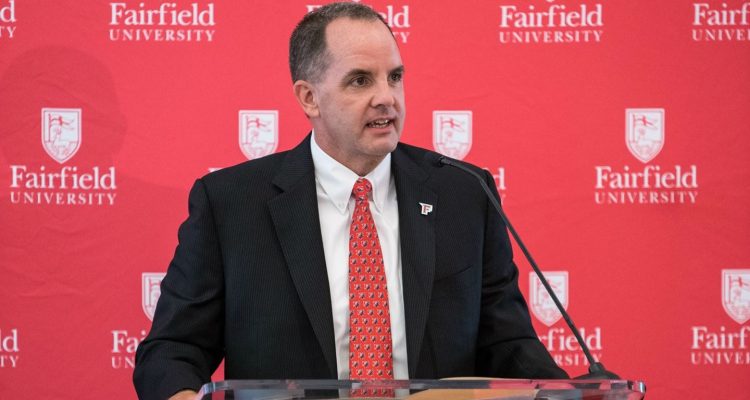Across America, and the entire world, we are currently experiencing unprecedented and confusing times. That much is certain. Everything else is up in the air.
Many aspects of life in a post-pandemic world are called into question. For fans of college athletics, the future of their beloved teams hang in the balance. What will become of this fall’s athletic season? Even beyond the fall, will we be able to go and watch our favorite teams play? Questions like these are swirling around universities across the nation. Though this will undoubtedly affect spectators who are craving their fix of college athletics, perhaps a more important question has arisen: How will this affect the athletic programs themselves?
In order to shed some light on this dark future, I reached out to Fairfield University’s own athletic director, Paul Schlickmann. I asked him what the impact of games without spectators would have on college-level athletics.
“I think it is safe to say that everybody at Fairfield, and everybody in college athletics nationwide, would prefer to have spectators at our contests in the fall,” Schlickmann stated. “[Fairfield University takes] pride in providing an exciting game day experience for all of our fans, as well as our student athletes,” he added.
Schlickmann made it clear, however, that Fairfield would not do so at the expense of the safety of community members.
“Our commitment to the health and safety of all of our community members – students, coaches, staff and fans – is paramount at this time and will not be compromised for this, or any other, reason,” Schlickmann said.
This reasoning, that spectators at sporting events will not come at the cost of the safety of everyone involved, can be assumed to be a stance taken by college athletic programs nationwide. However, this did impose another major question for me: How would a lack of spectators at games impact the financial situation for college athletic programs?
Schlickmann seemed reluctant to take a firm stance on answering this question, as this whole ordeal is still so new and uncertain.
“We can’t say that any one factor, or the overall financial picture, would be significantly impacted in a positive or negative way until we know exactly what the landscape is going to be as we approach the fall,” he said, also adding, “there are many financial factors to consider – ticket sales from game attendance being one of them for some of our athletics programs.”
In essence, the answer seems to be that it is simply too early to know anything for certain about the coming fall season.
One thing I do know to be certain is that there are many more important concerns brought up by this worldwide crisis that need to be addressed and taken care of before athletic events are a focus. The health and safety of all people, as Schlickmann said, is of the utmost importance. Regardless, this doesn’t seem to be an issue that will go away any time soon, which caused me to have concern for not only the coming fall season, but even so far as next winter.
When asked to comment on how Fairfield planned to proceed in the event that all spectators were barred from fall contests and even from winter contests, Schlickmann stated that, “Fairfield University and the Department of Athletics are preparing for all scenarios for the fall semester and beyond. We continue to monitor orders and recommendations from federal, state and local officials, and we will be prepared to carry out the fall semester in the fashion that is deemed safe and responsible.”
As an enthusiastic fan of sports myself, particularly at the college level, it is a difficult idea to bear that COVID-19 may affect athletics well into the fall, and potentially beyond. College soccer, volleyball, football – they may potentially all have to navigate a season without the support of a crowd of spectators to support them, if they are able to have a season at all. Though this is particularly heartbreaking to deal with, it is important to take a step back and put this into perspective. Athletics are an important part of life for many, but not nearly as important as the health of all people. Whatever steps need to be taken, whether it means barring spectators from athletic events or cancelling seasons altogether, these measures should be executed without hesitation if deemed as necessary for the safety of the general public.
Regardless of how extreme measures will be, there will most certainly be some kind of impact. This virus is not simply going to go away in the coming months. College athletics, as well as athletics at every level, will be forced to change and adapt in some form. As a result, spectators, athletic teams and departments alike must be prepared to weather this inevitable storm by any means necessary.


Leave a Reply